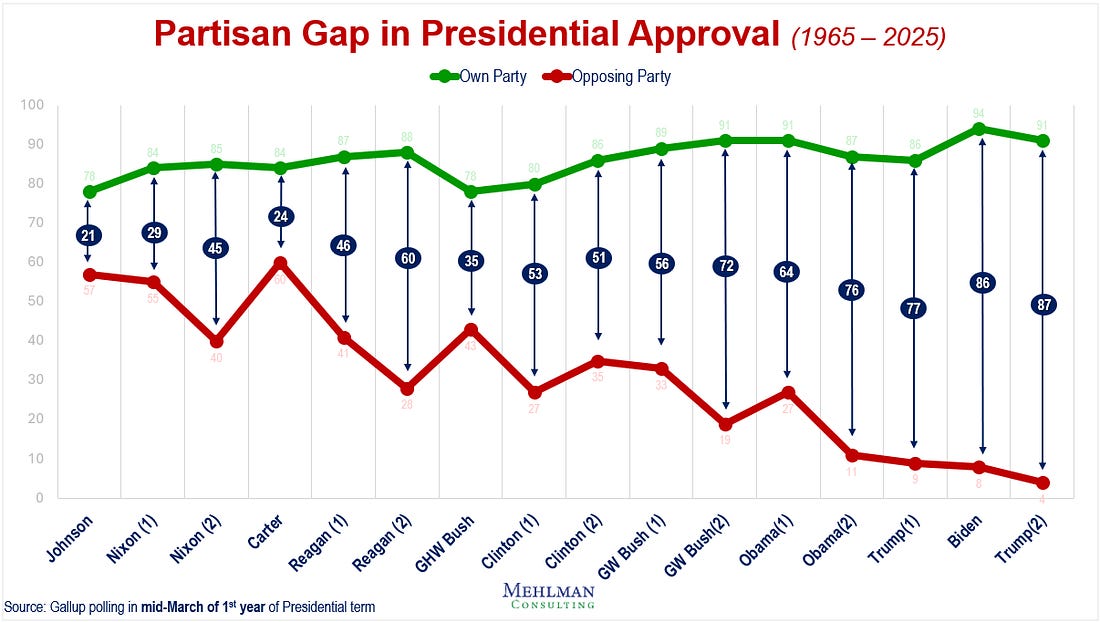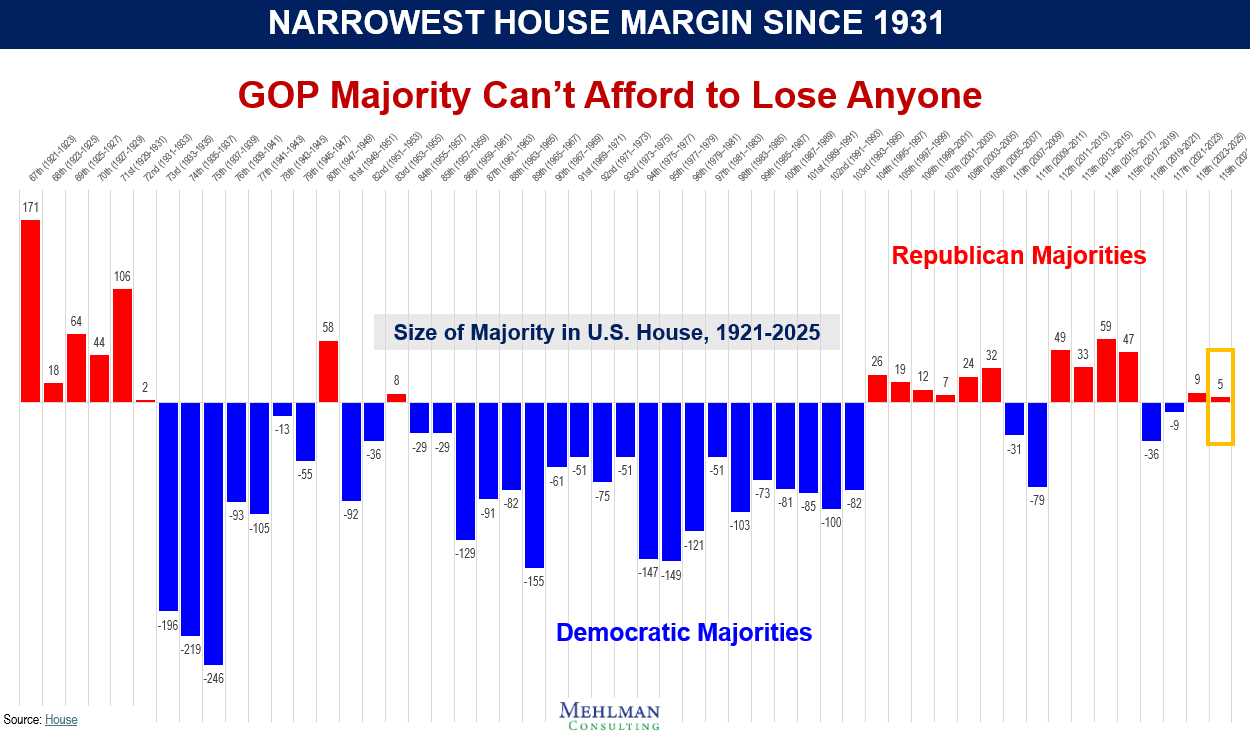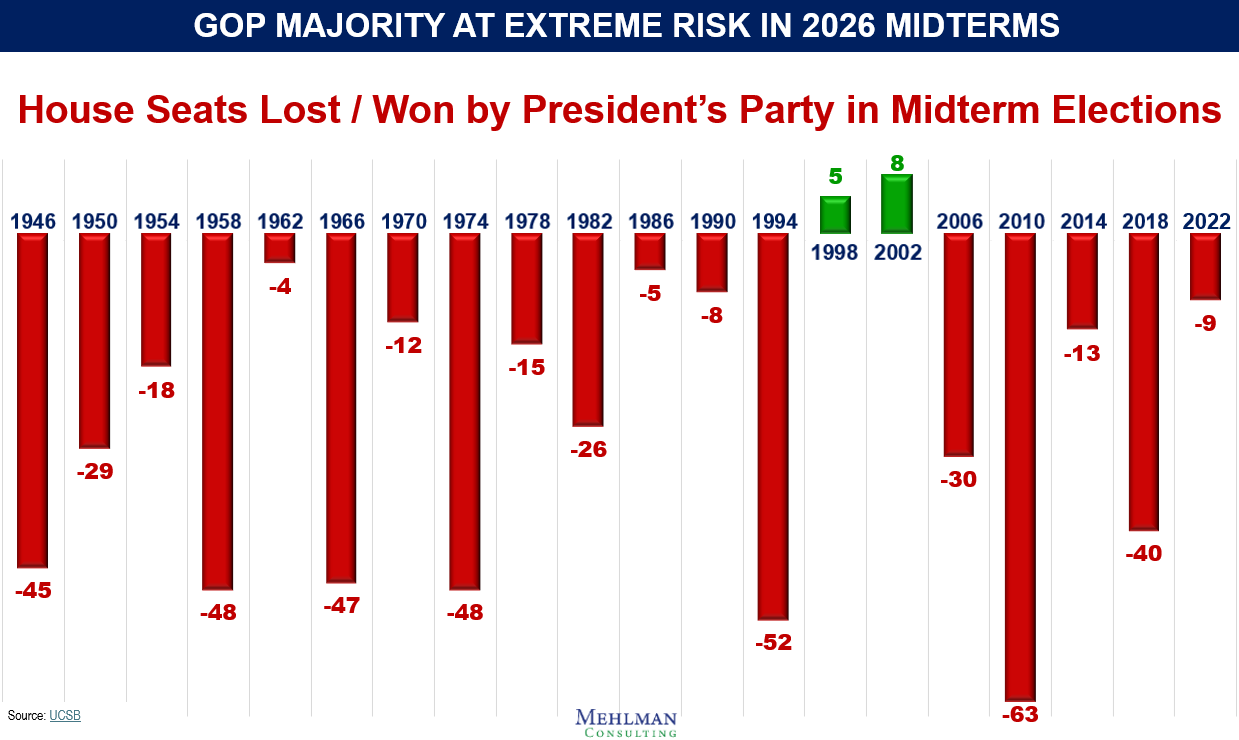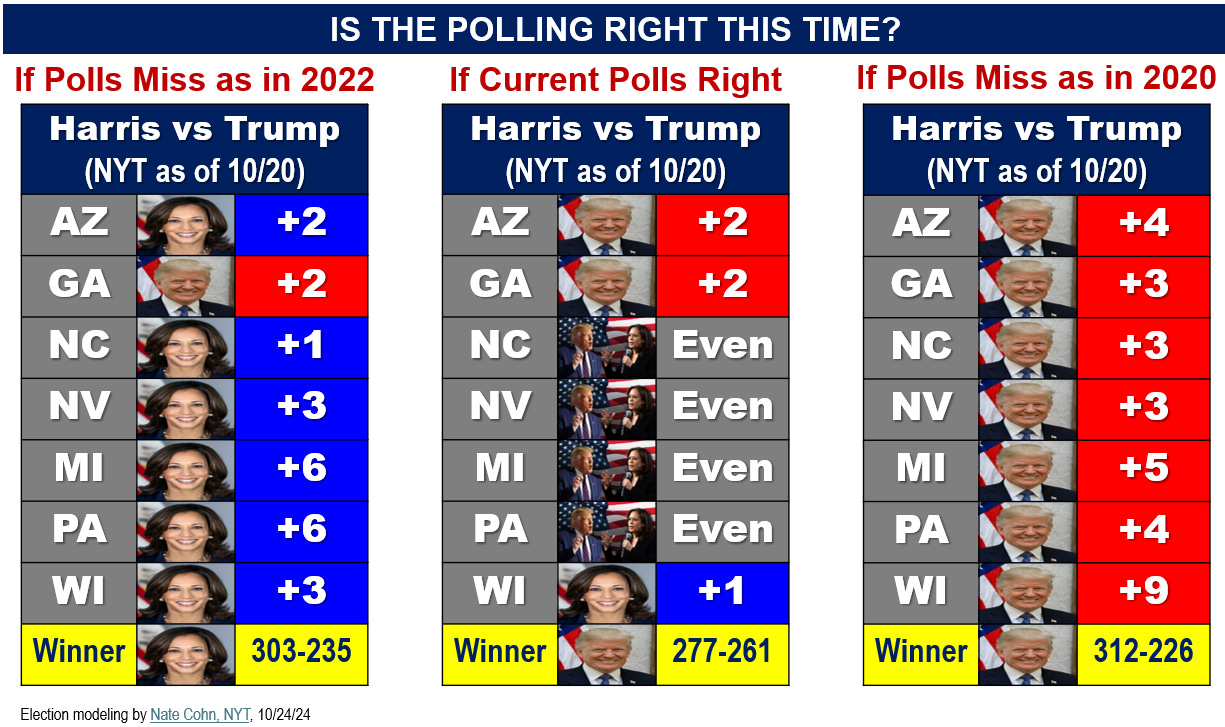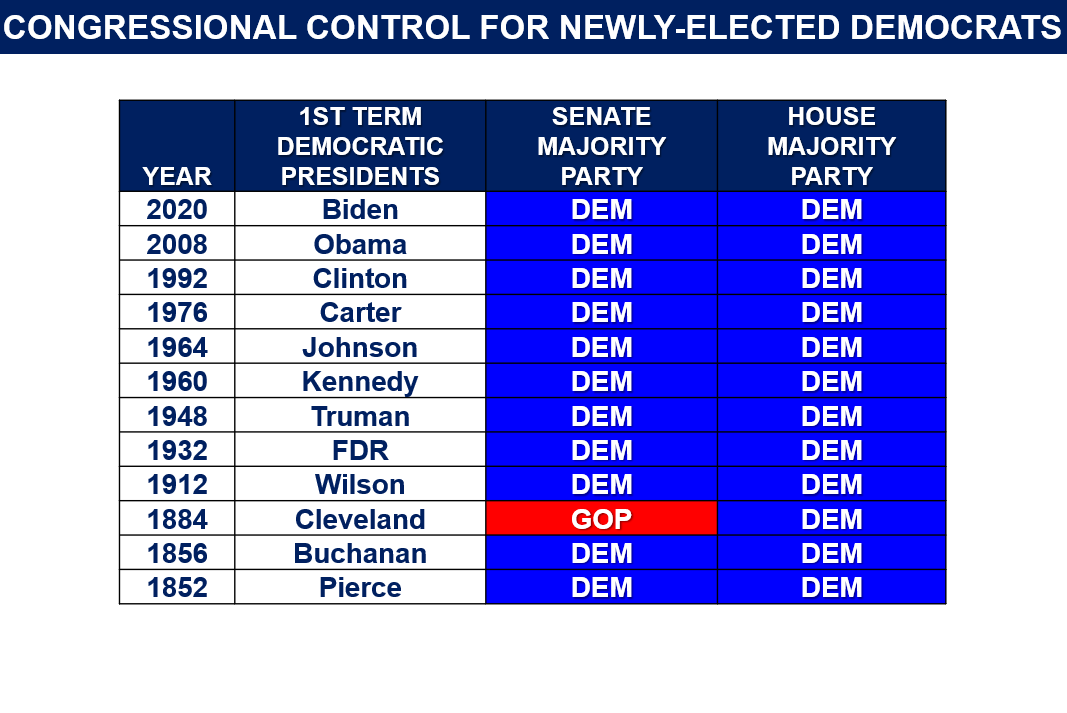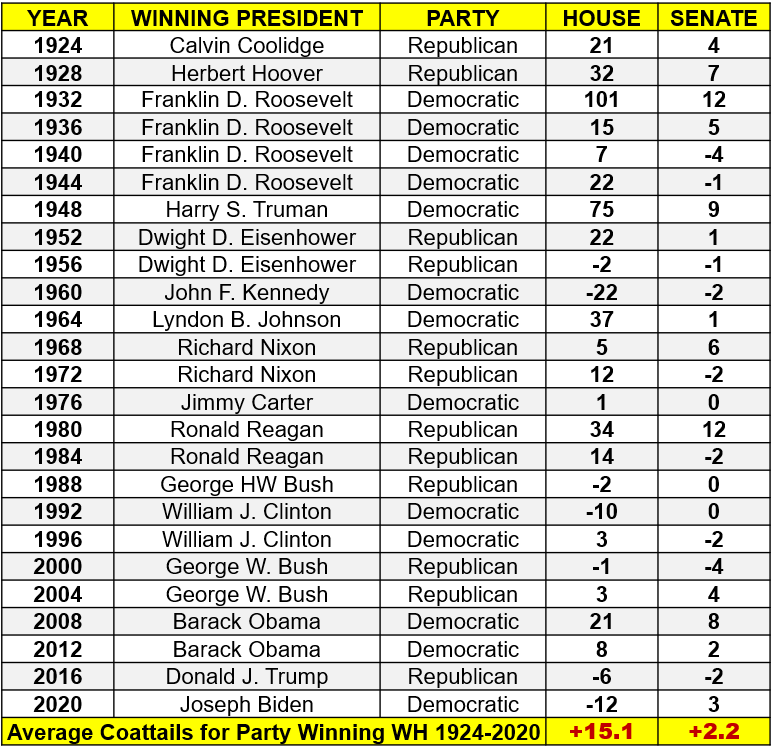Bruce Mehlman:
Researchers were using high-performance computing and big data to discover new materials and analyze proteins before AI… but AI massively accelerated & improved such data-intensive efforts. Gerrymandering dates to 1812 in the U.S. Party strategists have been leveraging voter data and computing to draw advantageous maps for decades. AI promises gerrymandering on steroids — weapons of mass division in the 2025 redistricting wars — with powerful AI models able to (1) precisely-sift unprecedented amounts and unprecedentedly-personal data, (2) compare unlimited potential maps to optimize outcomes. But while AI-enabled cramming could reduce the paltry 20% of seats that are currently competitive, AI-drawn maps might also create more competitive seats by shifting voters out of safer seats (where risk-averse incumbent politicians often prefer them).




